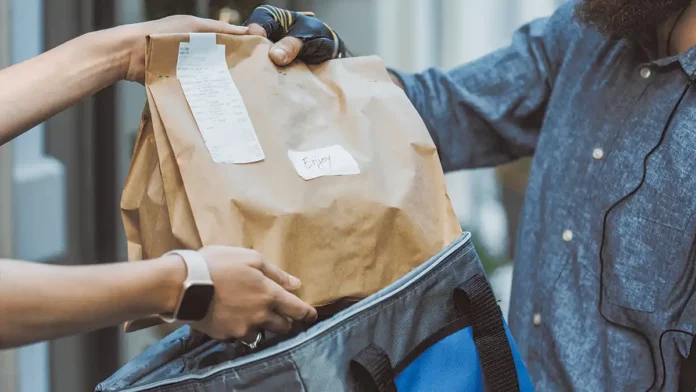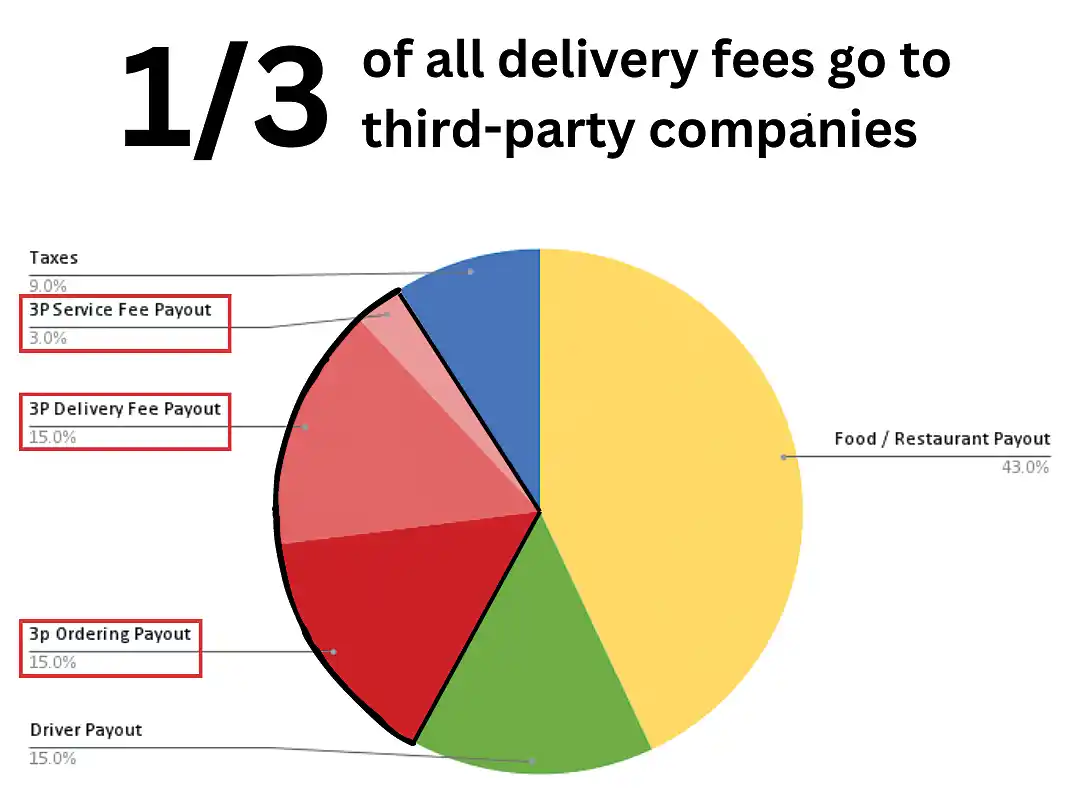
Article contributed by Joe Reinstein, Digital Restaurant Association
In recent years, the rise of online ordering and delivery has revolutionized the way we enjoy our favorite restaurants and meals wherever we are.
Third-party delivery platforms brought unprecedented convenience to consumers and were a lifeline for restaurants during the pandemic.
However, the embrace of the digital marketplace has presented new challenges for the restaurant industry.
Among the most contentious issues are the high fees charged to restaurants and their customers by delivery platforms.
While fee caps were a temporary solution to avoid price gouging during the pandemic, with 4 states and 69 counties, cities and local communities passing fee cap policies since March 2020, these caps have resulted in unintended consequences that have negatively affected small businesses that already struggle with razor thin profit margins.
That’s why recently more cities have been proposing fee transparency policies as a more viable and beneficial approach to allow consumers to know exactly where their fees are going and make more informed purchases.
Before we get into the specifics, it’s important to understand all the fees customers and restaurants are being saddled with, especially from the big third–party online order and delivery companies.
- Order Fee / Commission – third-party delivery companies charge restaurants for providing them with an order
- Delivery Fee – third-party delivery companies charge consumers for food delivery
- Advertising / Marketing Fees – third-party delivery companies charge restaurants to increase their visibility on the platform
- Service / Processing Fee – charged to consumers by third-parties to cover operational costs
- Driver Gratuity – customer tip for driver / courier
- Fuel Surcharge – added charge due to higher gas prices
The Pitfalls of Fee Caps
The pandemic model of fee caps set absolute limits for commissions that a third party delivery app could charge.
While this rough justice made a difference customers could see, third-party platforms quickly learned to sidestep the fee cap by introducing additional fees charged to restaurants and eaters.
In exchange for new service, advertising, and marketing fees, third party apps offered restaurants more exposure on their platforms and expanded the radius they were visible around their locations.
However, to compensate, these apps cut access to independent or smaller restaurants that were unable to afford higher commissions.
This disparity caused order rates to plummet for restaurants that refused to pay the higher marketing fees and drastically curtailed these businesses’ ability to survive in the long term.
Essentially, the delivery apps used their algorithm and pay-to-play marketplaces to reward restaurants that paid additional fees in excess of the cap and penalized restaurants that did not.

While strict fee caps might initially appear appealing, the example above shows how they inadvertently hurt smaller, independent establishments that are unable to negotiate lower commission fees with third-party platforms that are available to larger, national chains.
Chain restaurants and franchises with multiple locations have more bargaining power and resources to negotiate lower and perhaps, unsustainable, fees.
Giving a better deal to larger chains also has led the big third-party online food ordering and delivery marketplaces to charge much higher fees to smaller, independent restaurants.
There are more nuanced ways for policymakers who want to help smaller restaurants reach the same result.
For example, applying reasonable caps to the larger platforms on their marketing and advertising fees limits the abuses described above while potentially freeing up independent restaurants to use their preferred method of delivery whether their own driver / fleet or a third-party— saving money for delivery platforms, independent restaurants, and customers.
In this scenario, fee caps make sense only when the third-party delivery platform is sending an order to a restaurant.
This bring-your-own-courier (BYOC) scenario allows the restaurant to provide their own driver/fleet or use a third-party.
The restaurant can choose the best delivery method, while the order they receive from the big third-party platforms should be capped at a max fee of 5%, based on a realistic and evaluated understanding of marketing costs.
Understanding Fee Transparency
Fee transparency entails providing restaurants, customers and even drivers and couriers with a clear breakdown of all fees imposed by delivery platforms.
Instead of setting arbitrary limits on these fees, transparency enables restaurants to comprehend the cost structure, ensuring all users are aware of the exact amount that goes to the platform for each order.
Armed with this knowledge, restaurants can make informed decisions about whether to partner with a particular platform, negotiate better terms, or explore alternative options.
For consumers, they know exactly which fees are going to the restaurant, driver, and delivery app.
Regulatory Considerations
During a time when online orders make up an average of 30% of a restaurant’s business, it is essential that there is collaboration between regulators, restaurant operators, third-party delivery companies, and restaurant customers to ensure that any proposed policies continue to allow the restaurant industry to grow and thrive.
Elected officials across the country from all levels of government have affirmed their commitment to protect local restaurants but must act decisively to ensure that their policies reflect the nuanced needs of the industry and foster an environment that is conducive to its growth and sustainability.
Fee transparency emerges as a forward-looking solution that addresses the complexities of the digital marketplace while promoting fairness, competition, and sustainable growth for all parties.
Cities like Miami are currently considering transformational legislation directly aimed at empowering Miami restaurants through fee transparency, supported by hundreds of local restaurant owners and operators.
As other cities and communities continue charting their regulatory paths, an emphasis on transparency will underscore the shared commitment to maintain a vibrant and equitable restaurant landscape that benefits everyone involved.

Joe Reinstein is the Executive Director of the Digital Restaurant Association, a non-profit 501(c)6 membership organization dedicated to helping restaurants thrive in the digital world.
The DRA strives to be the premiere restaurant industry resource for profitable online revenue generation, innovation, public policy and growth.
Led by an advisory board of leading restaurateurs and a staff with expertise in digital operations, the DRA leverages the power of the collective voice of the restaurant industry to advance policies that will protect and promote the digital restaurant business.
To learn more or join the DRA, visit DRA’s website.

























